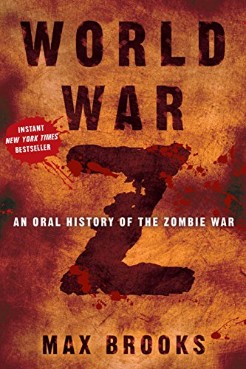It goes by many names: “The Crisis,” “The Dark Years,” “The Walking Plague,” as well as newer and more “hip” titles such as “World War Z” or “Z War One.” I personally dislike this last moniker as it implies an inevitable “Z War Two.” For me, it will always be “The Zombie War,” and while many may protest the scientific accuracy of the word zombie, they will be hard-pressed to discover a more globally accepted term for the creatures that almost caused out extinction. Zombie remains a devastating word, unrivaled in its power to conjure up so many memories or emotions, and it is these memories, and emotions, that are the subject of this book.
This record of the greatest conflict in human history owes its genesis to a much smaller, much more personal conflict between me and the chairperson of the United Nation’s Postwar Commission Report. My initial work for the Commission could be described as nothing short of a labor of love. My travel stipend, my security access, my battery of translators, both human and electronic, as well as my small, but nearly priceless voice-activated transcription “pal” (the greatest gift the world’s slowest typist could ask for), all spoke to the respect and value my work was afforded on this project. So, needless to say, is came as a shock when I found almost half of that work deleted from the report’s final edition.
“It was all too intimate,” the chairperson said during one of our many “animated” discussions. “Toom many opinions, too many feelings. That’s not what this report is about. We need clear facts and figures, unclouded by the human factor.” Of course, she was right. The official report was a collection of cold, hard data, an objective “after-action report” that would allow future generations to study the events of that apocalyptic decade without being influenced by “the human factor.” But isn’t the human factor what connects us so deeply to our past? Will future generations care as much for chronologies and casualty statistics as they would for the personal accounts of individuals not so different from themselves? By excluding the human factor, aren’t we risking the kind of personal detachment from a history that may, heaven forbid, lead us one day to repeat it? And in the end, isn’t the human factor the only true difference between us and the enemy we now refer to as “the living dead”? I presented this argument, perhaps less professionally than was appropriate, to my “boss”, who after my final exclamation of “we can’t let these stories die” responded immediately with, “Then don’t. Write a book. You’ve still got all your notes, and the legal freedom to use them. Who’s stopping you from keeping these stories alive in the pages of your own (expletive deleted) book?”
